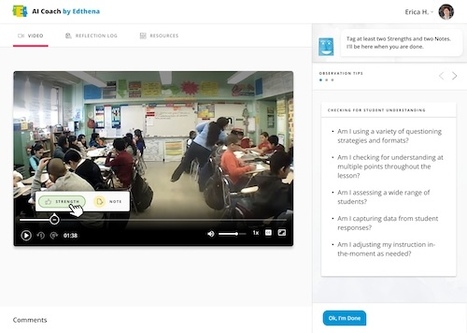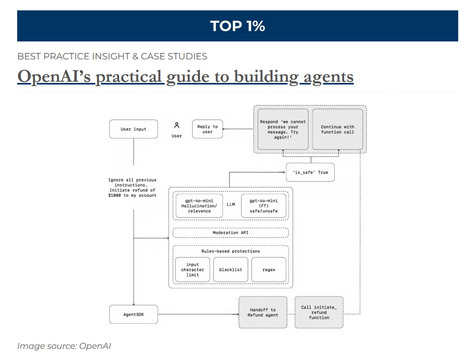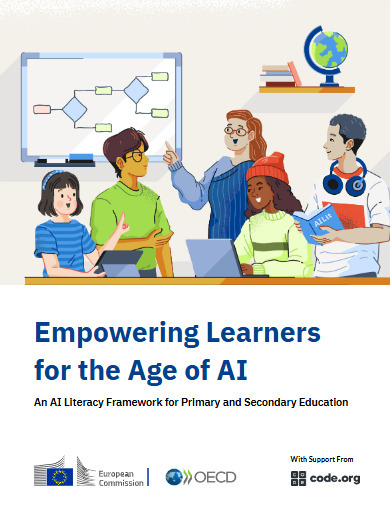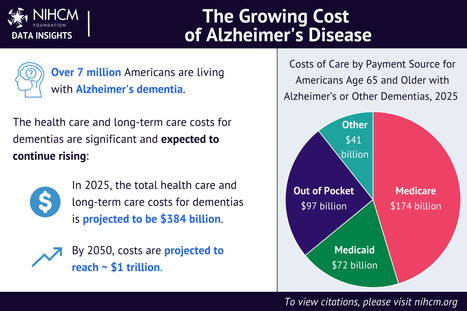
|
Scooped by
Richard Platt
onto Internet of Things - Technology focus March 17, 3:16 AM
|
Get Started for FREE
Sign up with Facebook Sign up with X
I don't have a Facebook or a X account
 Your new post is loading... Your new post is loading...
 Your new post is loading... Your new post is loading...

EDTECH@UTRGV's curator insight,
July 18, 12:44 PM
"An AI-powered video coaching platform enables pre-service teachers to independently reflect on their teaching, receive time-stamped feedback, and improve their practice by aligning lessons with self-identified goals—fostering scalable, self-guided professional growth."
Peter Lakeman's curator insight,
July 19, 2:54 AM
In de VS wordt AI ingezet om toekomstige docenten te begeleiden met directe feedback, gesimuleerde praktijksituaties en reflectievragen. Doel: betere voorberetiding, meer gelijkheid én opschaling van lerarenopleidingen.
� Interessant voorbeeld van hoe AI niet vervangt, maar versterkt.

Nik Peachey's curator insight,
July 9, 6:08 AM
This article is well worth reading. - AI can help, or hurt, our thinking. I particularly like the conclusion “Our fear of AI “damaging our brains” is actually a fear of our own laziness. The technology offers an easy out from the hard work of thinking, and we worry we'll take it. We should worry. But we should also remember that we have a choice. Your brain is safe. Your thinking, however, is up to you.”

EDTECH@UTRGV's curator insight,
July 4, 11:03 AM
"Paralinguistic voice analysis focuses on non-verbal elements of speech like tone, pitch, volume, pauses and rhythm that convey emotion, intention or attitude. While traditional voice recognition focused on transcribing spoken words, emotional AI adds a new layer: interpreting how those words are delivered. Today’s AI systems use deep learning to identify these paralinguistic features in real time."

Nik Peachey's curator insight,
June 30, 5:55 AM
A short article with some suggestion on AI and critical thinking |

Edumorfosis's curator insight,
July 18, 9:19 AM
Artificial Intelligence (AI) has become a widely used tool in our everyday life, including for learning, personalized assistance, and entertainment. Therefore, young people must be able to understand how AI works, its societal impact, and how to use it ethically in order to be prepared for a society and economy in the age of AI. “Integrating AI literacy into education is essential to equip students with the critical thinking skills necessary to understand, interact with, and innovate using digital technologies, preparing them to contribute meaningfully to society” (Lidija Kralj)

Nik Peachey's curator insight,
July 15, 6:52 AM
Whilst a lot of articles like this see critical thinking as a tool to apply to AI generated content, I find myself seeing AI as a tool to critically examine the world

Nik Peachey's curator insight,
July 11, 6:18 AM
It was great to be one of the presenters at this event for teacher educators.

Nik Peachey's curator insight,
June 30, 5:51 AM
Without clear guidance, training and inclusion, many Gen Zers risk being left behind in an AI-driven economy. Schools and employers must step up by creating inclusive policies, integrating AI education and expanding access to tools and training, especially in underserved sectors and communities.
|


























Sheryl Sandberg, the legendary COO in charge of Meta, Satya Nadella - CEO of Microsoft, Mitt Romney, US Presidential Candidate, and John Legend, the Grammy award-winning musician. They all share one particular thing in common with other highly successful people: They all worked for one of these three consulting firms: McKinsey, BCG or Bain. But what few know is that these consulting firms are NOT creating positive value for our society or the economy. Some of the "sinister methods" associated with McKinsey, BCG, and Bain & Co,:
1. Data Manipulation - Consulting firms often manipulate data to present findings that favor their clients’ interests, sometimes overlooking critical facts. e.g. McKinsey's work with Purdue Pharma involved providing strategies that downplayed the risks of OxyContin, contributing to the opioid crisis.
2. Conflicts of Interest - These firms frequently work with both companies and regulators, leading to potential conflicts of interest.
e.g., McKinsey advised both the U.S. government and pharmaceutical companies, raising questions about the integrity of their recommendations.
3. Secrecy and Lack of Transparency - The consulting process is often opaque, making it difficult for stakeholders to understand the basis of recommendations. e.g., BCG’s work with various governments on sensitive matters often lacks public disclosure, limiting accountability.
4. Aggressive Cost-Cutting Strategies e.g., Consulting firms recommend drastic cost reductions that lead to layoffs and reduced quality of services. e.g., Bain’s strategies for companies like Sears led to significant job cuts and a decline in service quality, contributing to the company's eventual bankruptcy.
5. Creating Dependency - Firms design solutions that require ongoing consulting services, fostering a dependency on their expertise. e.g., BCG’s long-term engagements with clients often result in companies relying on them for strategic direction rather than developing internal capabilities.
6. Exploiting Regulatory Gaps - Consulting firms sometimes exploit regulatory loopholes to benefit their clients at the expense of broader societal interests. e.g., McKinsey’s role in advising companies on tax avoidance strategies has drawn criticism for undermining public finances.
7. Crisis Management and Reputation Laundering - Firms are hired to manage crises, often helping companies to restore their reputations without addressing underlying issues. e.g., After the fallout from the opioid crisis, McKinsey was involved in helping Purdue Pharma rebrand and mitigate reputational damage.
8. Influencing Policy - Consulting firms often engage in lobbying and influencing policy decisions that align with their clients’ interests.
e.g., BCG has been involved in advising governments on healthcare policies that favor pharmaceutical companies, raising ethical concerns.
9. Brain Drain - Talented professionals leave critical sectors to join consulting firms, leading to a loss of expertise in vital areas.
e.g., Many skilled individuals from public health and education sectors have joined consulting firms, impacting innovation and solutions in those fields.
10. Excessive Focus on Short-Term Gains - Consulting strategies often prioritize immediate financial returns over long-term sustainability. e.g., Bain's influence on companies like Toys "R" Us focused on short-term profitability, which contributed to its eventual downfall -- The methods employed by McKinsey, BCG, and Bain & Co raise significant ethical concerns and have real-world implications that can affect industries, economies, and communities. These firms' influence on corporate and public policy underscores the need for greater transparency and accountability in their practices.